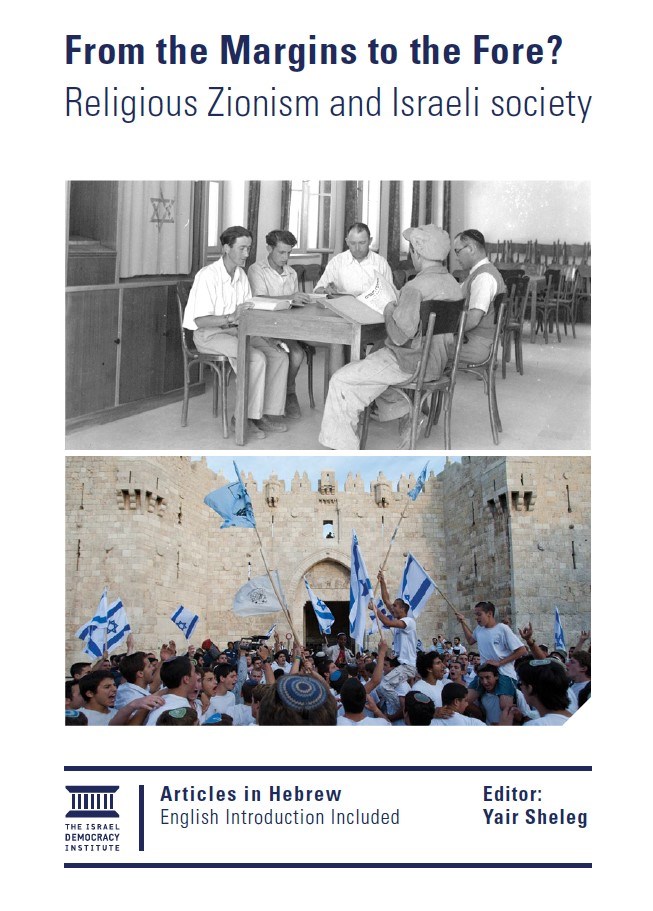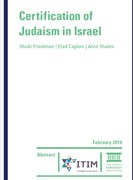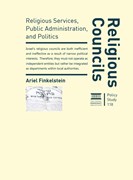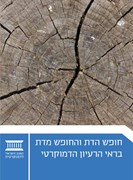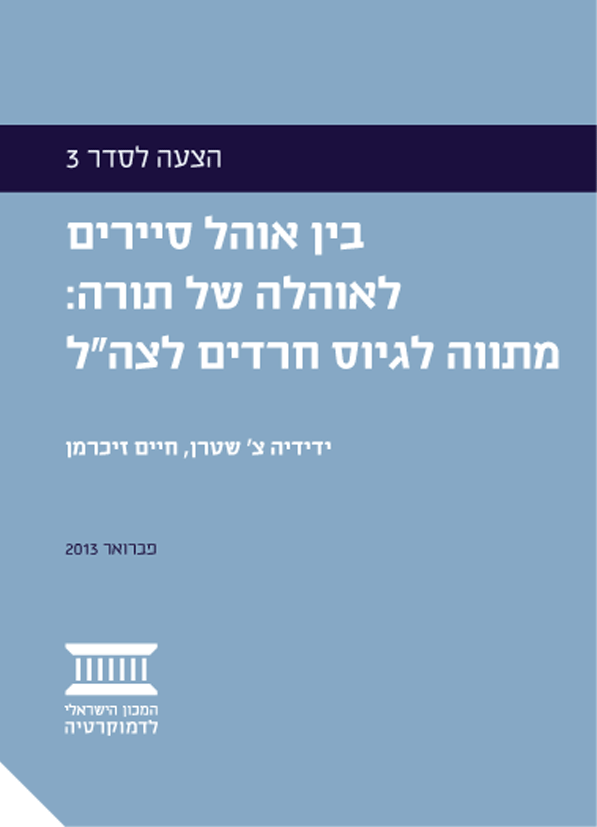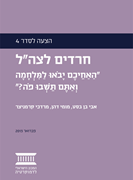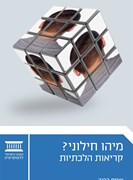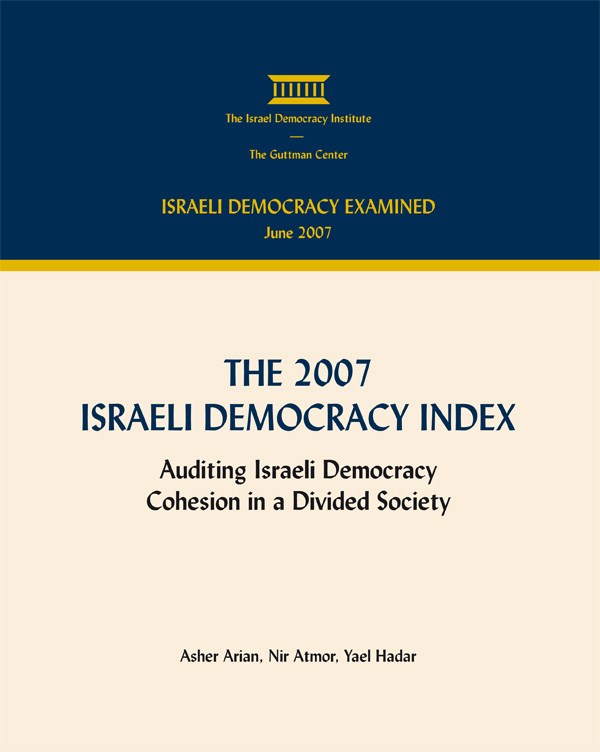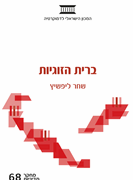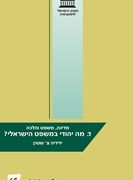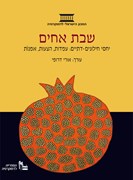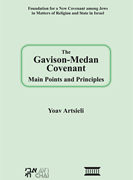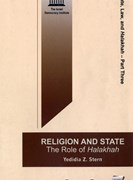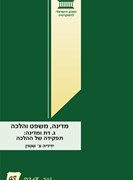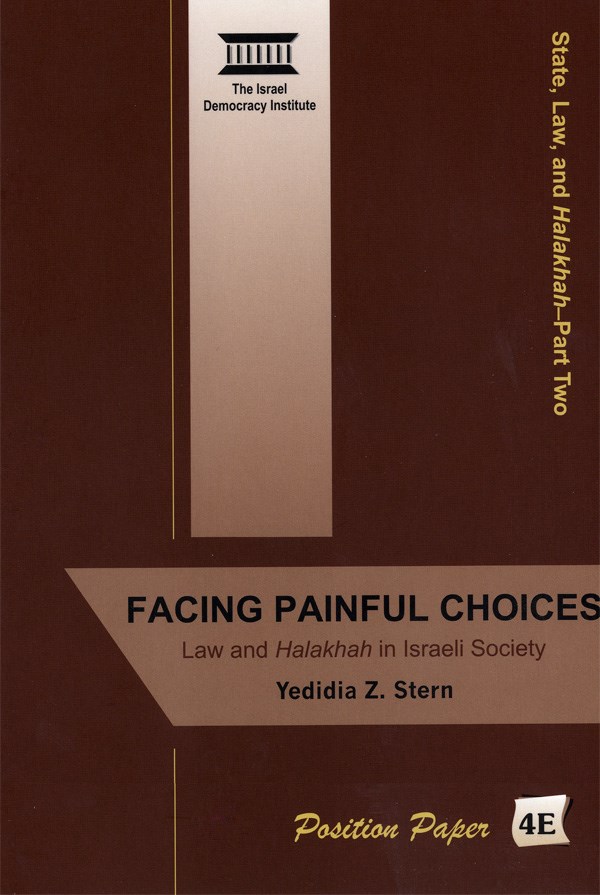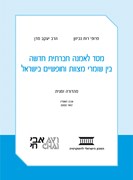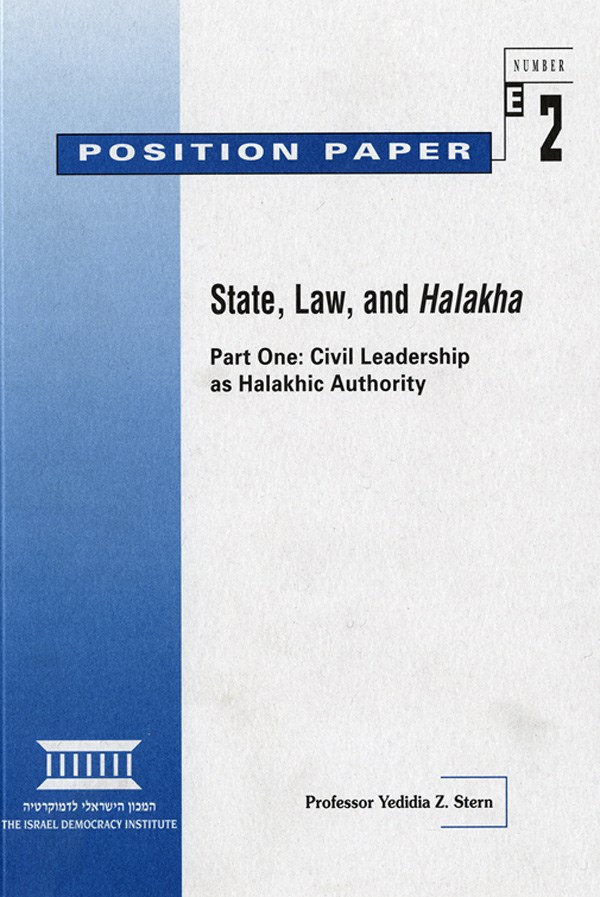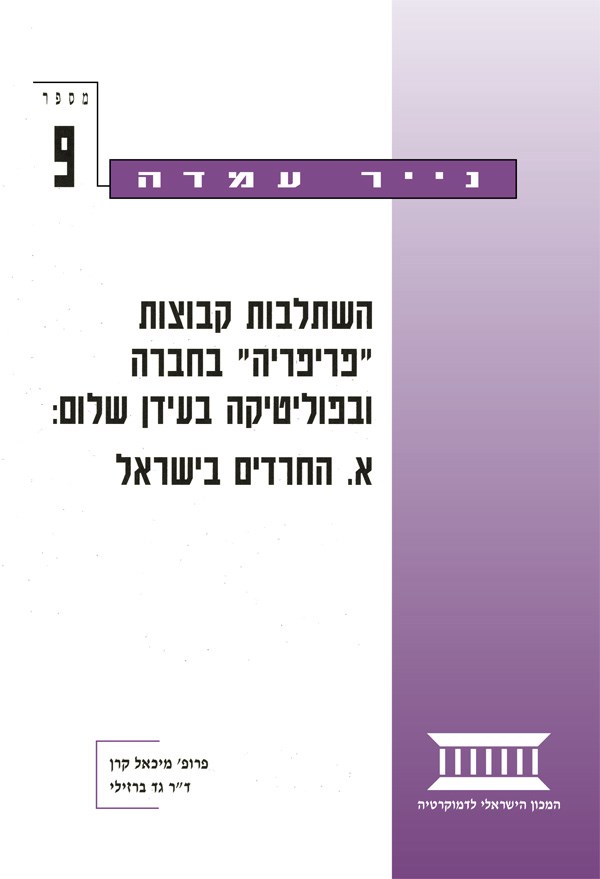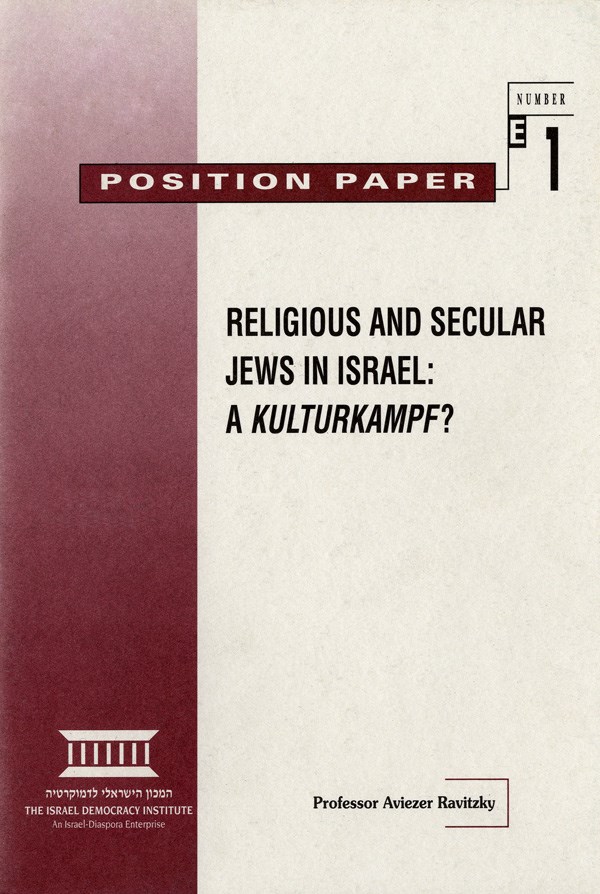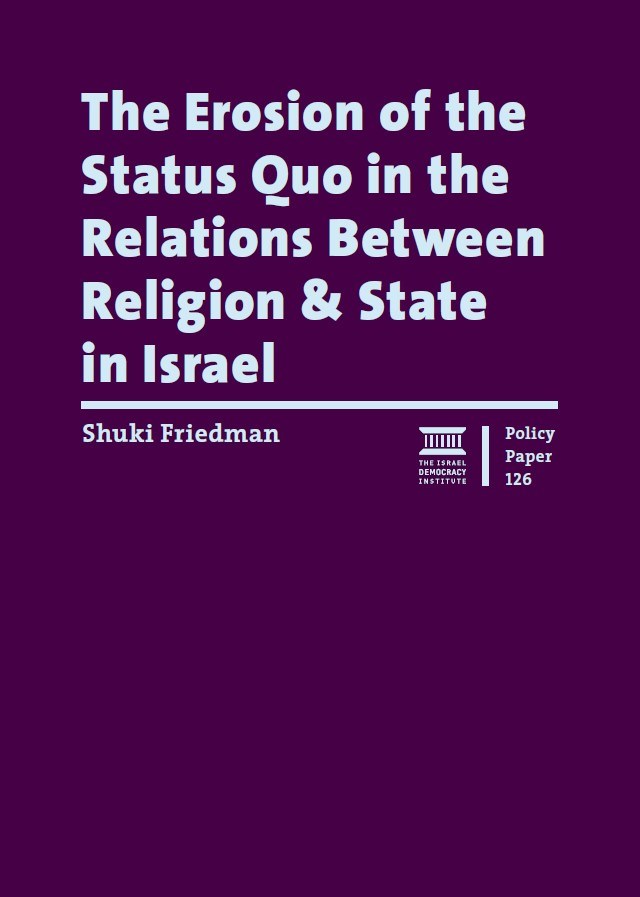

Publications Regarding Religious-Secular Relations
Articles

Analysis of Synagogue Attendance in Israel
Written By: Ayala Goldberg
Ahead of Yom Kippur, this analysis looks at data collected on attendance at prayers or religious ceremonies in Orthodox synagogues, as well as in Reform or Conservative synagogues in Israel. A majority of Jewish Israelis attend synagogue at least once per year.

Haredi Yeshiva Students Are Being Called to IDF Enlistment Centers. What’s Next?
Written By: Adv. Shlomit Ravitsky Tur-Paz, Dr. Eran Shamir-Borer, Adv. Mirit Lavi
On Monday August 5, 2024 and Tuesday August 6, 2024—900 ultra-Orthodox yeshiva students were required to present themselves at IDF enlistment centers. Shlomit Ravitsky Tur-Paz, Dr. Eran Shamir-Borer and Mirit Lavi explain the next steps the IDF will need to take in order to enforce the legal obligation of conscription.

Women’s Service in the IDF: Between a ‘People’s Army’ and Gender Equality
Written By: Dr. Idit Shafran Gittleman
Over the years and especially in recent decades, the concept of gender equality has also become relevant to the discussion of military service, and more and more roles have been opened up to women serving in the IDF. Dr. Idit Shafran Gittleman presents an overview of women in the IDF since its establishment.
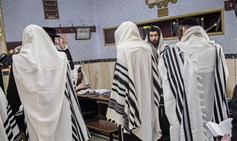
Policy Recommendations for the Minister of Religious Services
Written By: Dr. Shuki Friedman
After three contentious election campaigns Israel's new government has been sworn in. IDI's experts weigh-in with their recommendations on the most important issues on the agenda. Dr. Shuki Friedman on the challenges facing the 35th government in matters of religion and state.
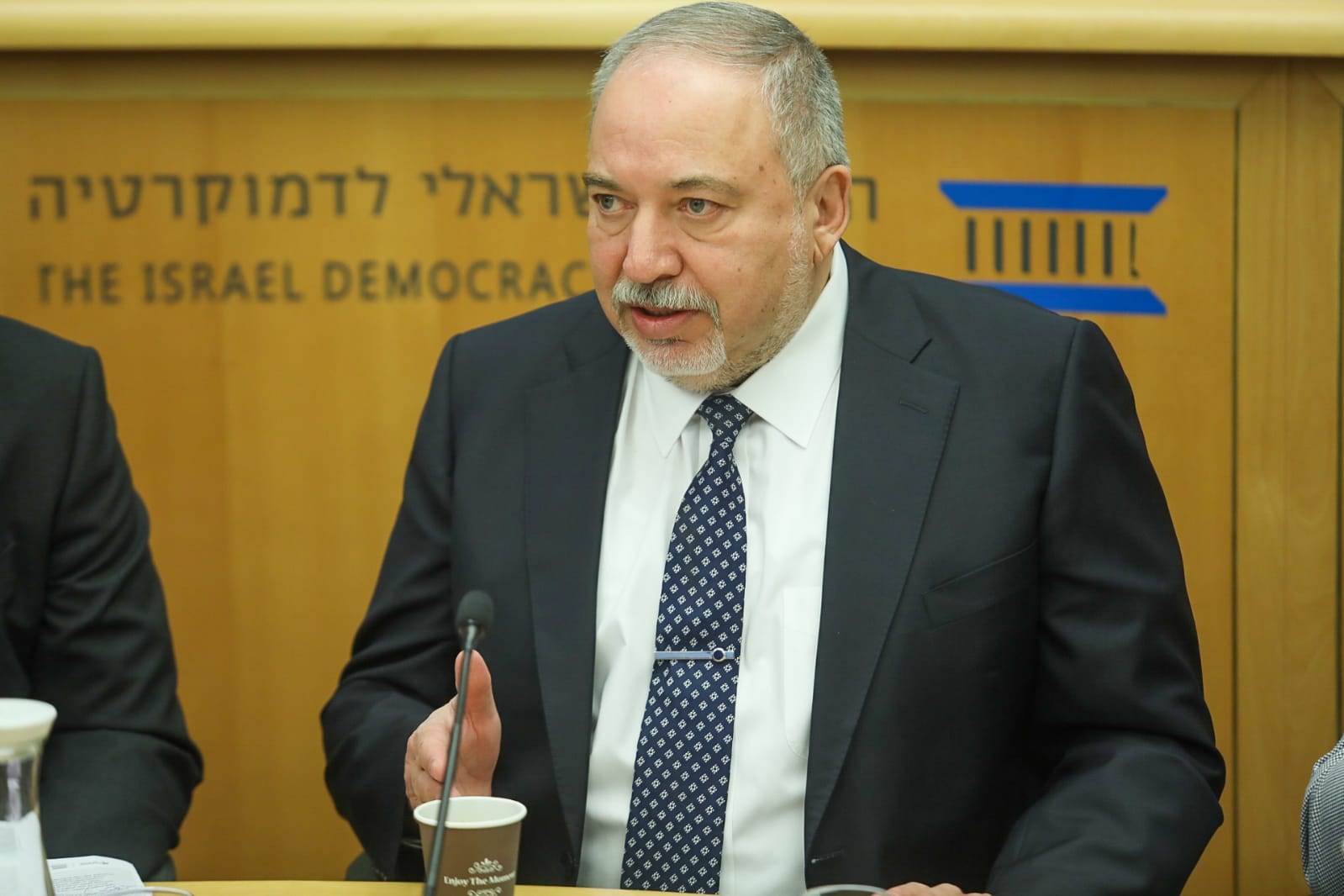
Towards a New Covenant on Religion and State in Israel: Conference
At IDI's conference Former Defense Minister MK Avigdor Liberman said he will not advance the recruitment plan he had drafted with the Ministry of Defense. "Every 18-year-old will be required to enlist."

Towards a New Covenant on Religion and State in Israel
Written By: Dr. Shuki Friedman
After years of struggles over issues related to religion and state, we hereby agree to adopt a new approach, which will create a covenant to provide a new system of arrangements and agreements to strengthen the link between the Israeli public and the Jewish identity of the State of Israel.

The Decade in Review: Religion and State
Written By: Dr. Shuki Friedman
Israel's once sacrosanct status quo seems less relevant than ever, with the essence of what it means to be a Jewish state in flux and at stake.
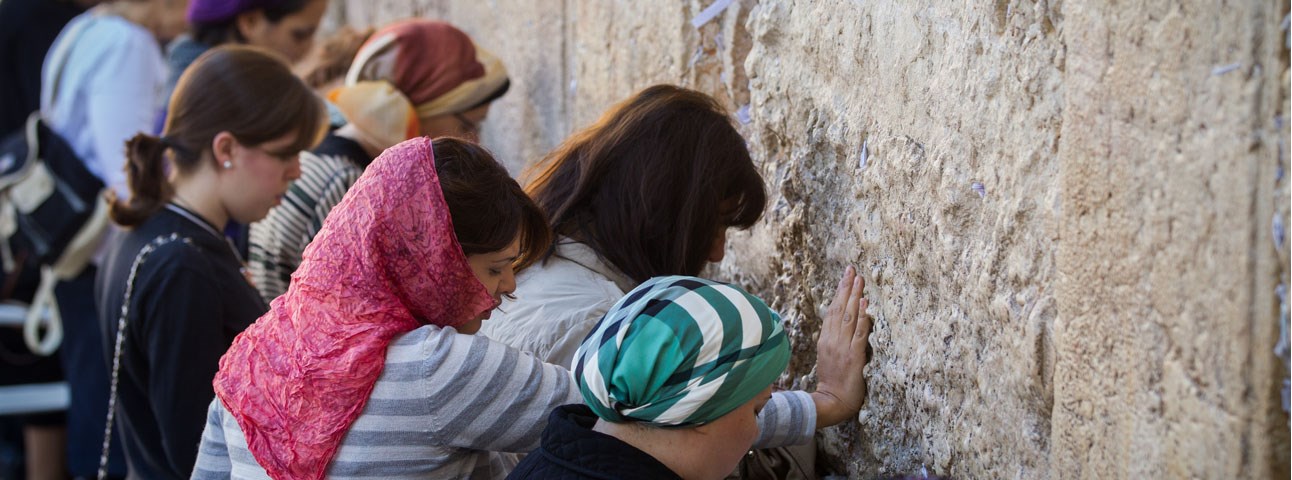
Facing Their Destiny
Written By: Yair Sheleg
All of us face the dread of the unknown future and the fate it holds for us.

Religion and State: Israelis Seek Change in Existing Arrangements
Even though most Israelis support opening businesses & public transportation on Shabbat issues of religion and state will not decide the September elections

Solidarity is a Must for the Survival of the Jewish people
Written By: Dr. Shuki Friedman
Jewish solidarity is an existential imperative. As we mark the solemn day of Tisha B'Av, Dr. Friedman reflects on the importance of strengthening the common denominator among all Jewish communities.
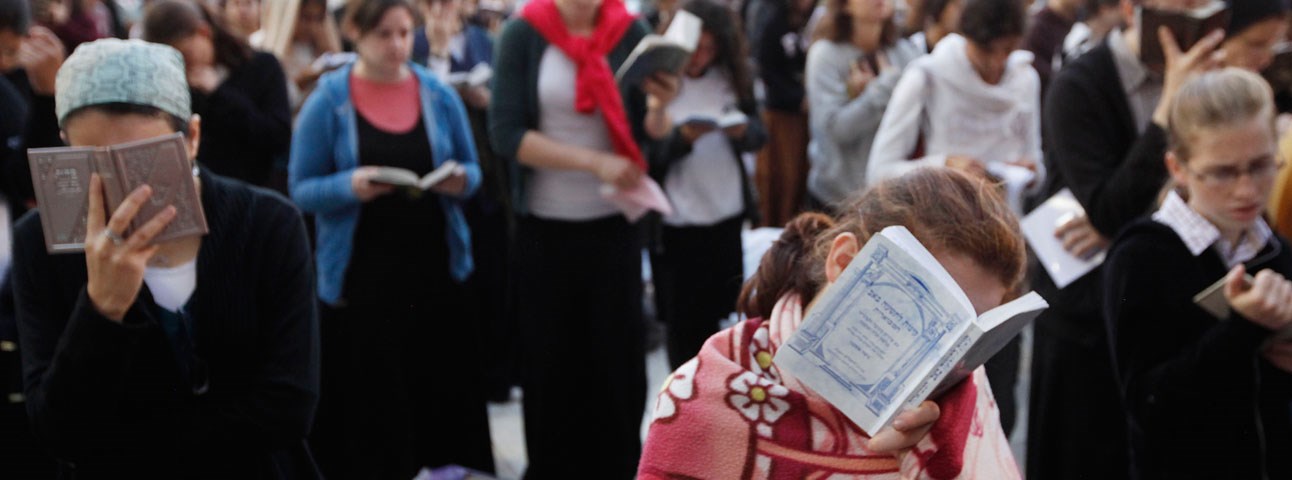
Tisha B'Av: What's Worth Mourning For?
Written By: Yair Sheleg
Strengthening the norms that are founded on our shared national traditions can help fortify our shared national identity - but any attempt to impose religious norms on a public when the majority does not identify with them will only lead to division and hate, says Yair Sheleg as we mark the mourning day of Tisha BÁv.
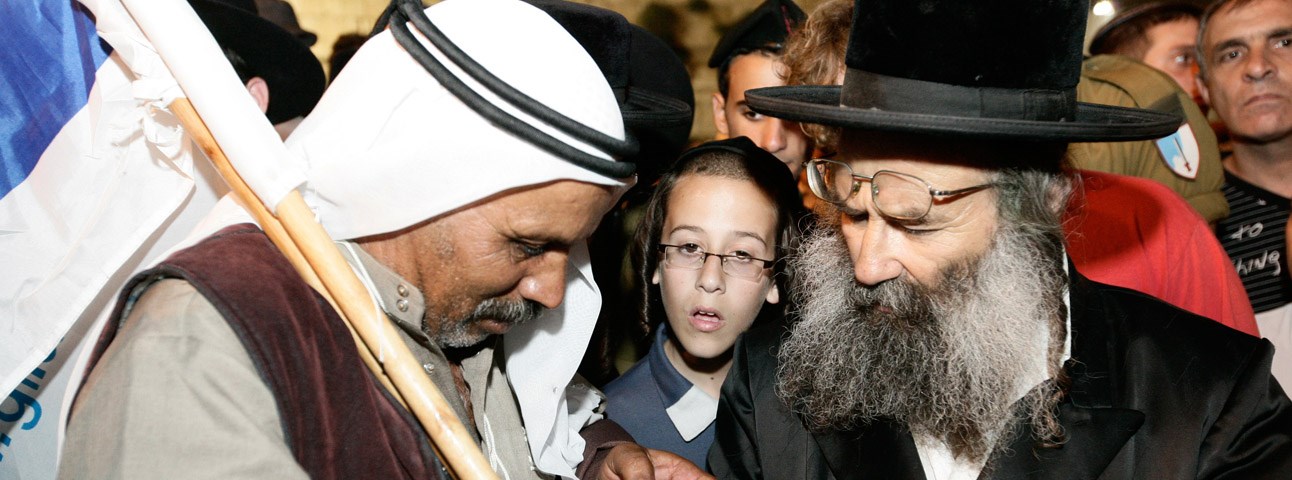
Is Israel like Iran? Hardly
Written By: Dr. Shuki Friedman
An unflattering US report on freedom of religion would have us believe that Israel is being run by an ayatollah-like regime. While some limits to freedom of religion exist, Israel is a free country

DNA Tests for Jewishness
Written By: Dr. Shuki Friedman
In today’s world of big data, it is easy to imagine what the impact would be of a single database containing information about their Jewishness—of Israelis and Jews around the world.

Too Much Religion in the Knesset?
Written By: Prof. Yedidia Z. Stern
The best estimate is that the religious and ultra-Orthodox will account for nearly a third (!) of the next Knesset. Should we be concerned that the Knesset is getting more religious?
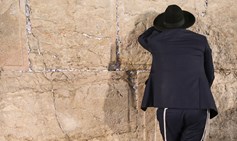
Integrating the Ultra-Orthodox
Written By: Dr. Gilad Malach
The current Knesset undermined policies that promote the integration that is key to ultra-Orthodox well-being; the next Knesset has the capacity to reverse the trend
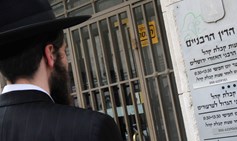
When the Government Provides Religious Services
Written By: Dr. Shuki Friedman
Full separation of religion and state isn't possible, but why is the Chief Rabbinate in the kashrut business?
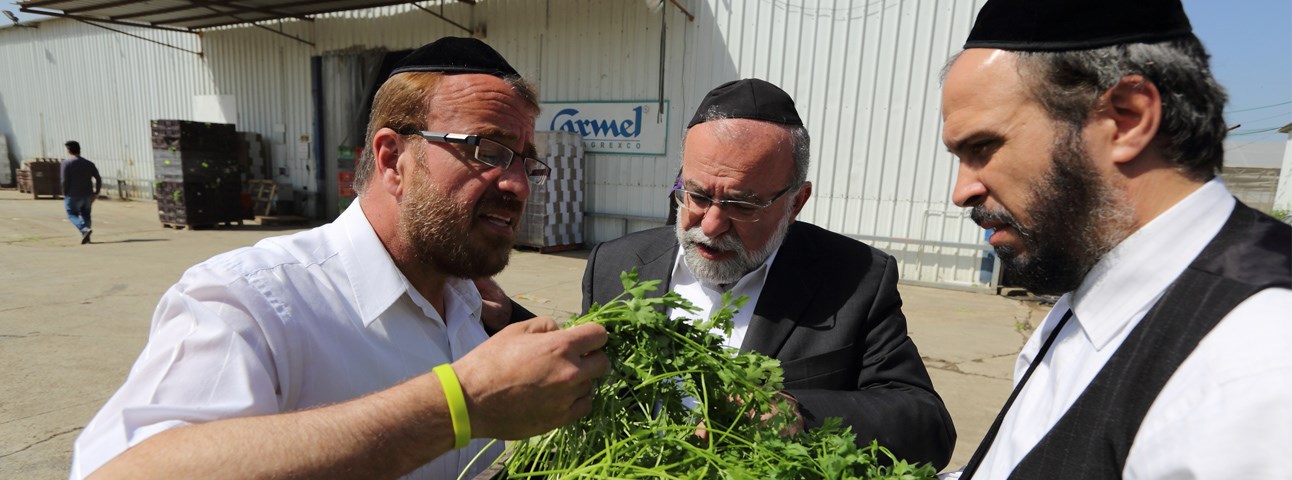
Kashrut Supervision Services Bill
IDI is calling to amend the Kashrut Supervision Bill, so that instead of creating an additional layer of intermediaries, the market will be open, transparent and regulated by Rabbinate authorized rabbis.

Beit Shemesh and Tel Aviv
Written By: Prof. Yedidia Z. Stern
How despicable is a mob that calls for non-partisanship but is unwilling to listen to a voice that speaks for a majority of Israelis today?
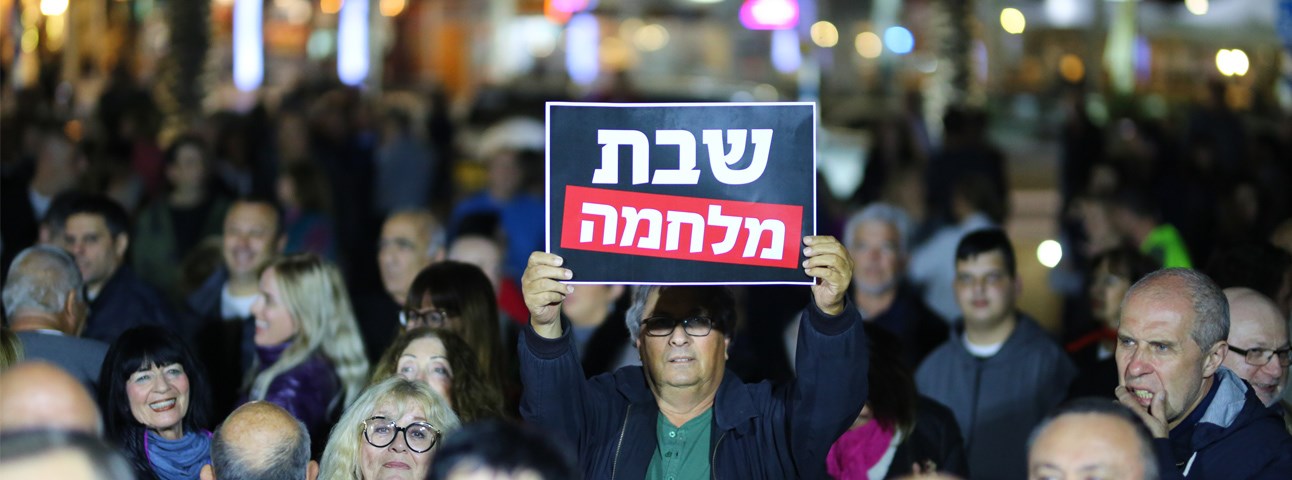
Faith and the City
Written By: Dr. Shuki Friedman
In an op-ed for the Jerusalem Post, Dr. Shuki Friedman, Head of IDI's Center for Religion, Nation and State, explains how local government plays a critical role in balancing religion and state in day-to-day life in Israel.

Shabbat in the City
Written By: Dr. Shuki Friedman, Adv. Gilad Wiener
A recent law stripped local authorities of the power to decide on allowing commercial activity on Shabbat and handed it over to the Minister of the Interior, a development which was met with public uproar. Would it not be better to leave these powers in the hands of the municipalities, which act according to the profile of their resident population? Dr. Shuki Friedman makes the case for leaving these decisions in the hands of the local authority.

Israel-Diaspora Rift Isn’t As Bad As You Think
Written By: Dr. Shuki Friedman
The rift between the Israeli Jewish community (as opposed to the Israeli government) and the U.S. Jewish community is not as deep as it is portrayed in the media.

Israel Is Repeating The Mistakes That Led To The Temple’s Destruction
Written By: Prof. Yedidia Z. Stern
What message of Tisha B’Av is relevant for life in a sovereign state like Israel? Does the American recognition of Jerusalem as the capital of Israel make the day of mourning for “the city that is in mourning, laid waste, despised and desolate” an anachronism?
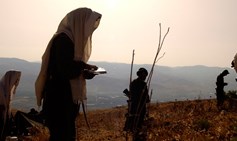
A Kosher Military
Written By: Yohanan Plesner
Yohanan Plesner discusses with Tipping Point the "People's Army". Can a compromise be reached and is "sharing the burden" of military service a realistic goal?
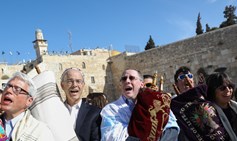
Calling on Our Leaders to Lead
Written By: Prof. Yedidia Z. Stern, Dr. Shuki Friedman
Leading public figures avoid dealing with issues that are of national importance when it entails confronting the ultra-Orthodox community.

Jews Worldwide Must Resist The Power Grab Of Israel’s Chief Rabbinate
Written By: Dr. Shuki Friedman
Step by step, the Chief Rabbinate is turning itself into the central source of halakhic legitimacy not just within Israel’s borders but beyond them, and becoming a global force through securing its power all over the Jewish world.
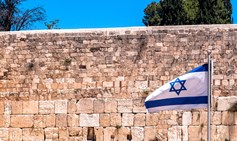
Israelis Are More Traditional Than You Think
Written By: Dr. Shuki Friedman
More than 25 years ago, the “Basic Law: Human Dignity and Liberty” affirmed that Israel is a “Jewish” and “democratic” state but did not define either of these terms in the Israeli context. Now is the time for us to turn to the Jewish identity that has been adopted by a large portion of Israel’s Jews and allow it to shape the country’s Jewish character.

Proposed Draft Bill Puts the “People's Army” at Risk
Written By: Yohanan Plesner
Yohanan Plesner, President of the Israel Democracy Institute cautions that the Ministry of Defense’s proposed draft bill “endangers IDF’s model of service as a “People's Army” based on the principle of mandatory service for all
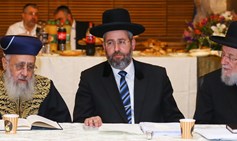
It is up to chief rabbis to preserve us as one people
Written By: Prof. Yedidia Z. Stern
On the practical side, religious conversion hasn’t ‘delivered the goods’ so far. Although it has been officially declared a national mission, less than 10 percent of non-Jewish immigrants and their offspring have completed the process. As a result, one in 20 non-Arab Israelis isn’t recognized as a Jew, despite having made aliyah under the Law of Return.

Preserving the Rabbinate’s monopoly over the kashrut market: the consumer will be the one to pay
The Israel Democracy Institute on the Ministry of Finance and Rabbinate's decision to preserve the Rabbinate’s monopoly over the kashrut market in Israel: the consumer will be the one to pay

Rabbinate’s criteria to recognize of rabbinical courts abroad - problematic
IDI on the Rabbinate’s publication on the recognition of rabbinical courts abroad: "A potential strategic blow to Israel’s connection with Diaspora Jewry and a serious operative problem for many Jews in Israel"
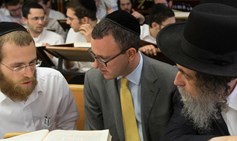
The Failures of the State Conversion System
Written By: Prof. Yedidia Z. Stern, Dr. Netanel Fisher
A new book from the Israel Democracy Institute
exposes the failures of the State conversion system over three decades
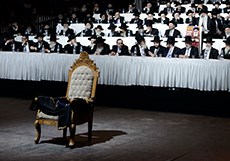
The End of the "Great Rabbis" (Gdolim) Era
Featuring two book launches: “Haredim A Guide to their Beliefs and Sectors” and “A Flock with No Shepherd: Shas Leadership the Day after Rabbi Ovadia Yosef”
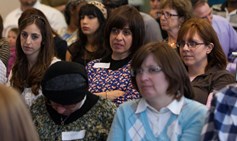
Integrating Women into Politics: Another Solution
Written By: Prof. Ofer Kenig, Dr. Chen Friedberg
The absolute exclusion of women from ultra-Orthodox parties keeps their specific interests from being addressed effectively in the public sphere.
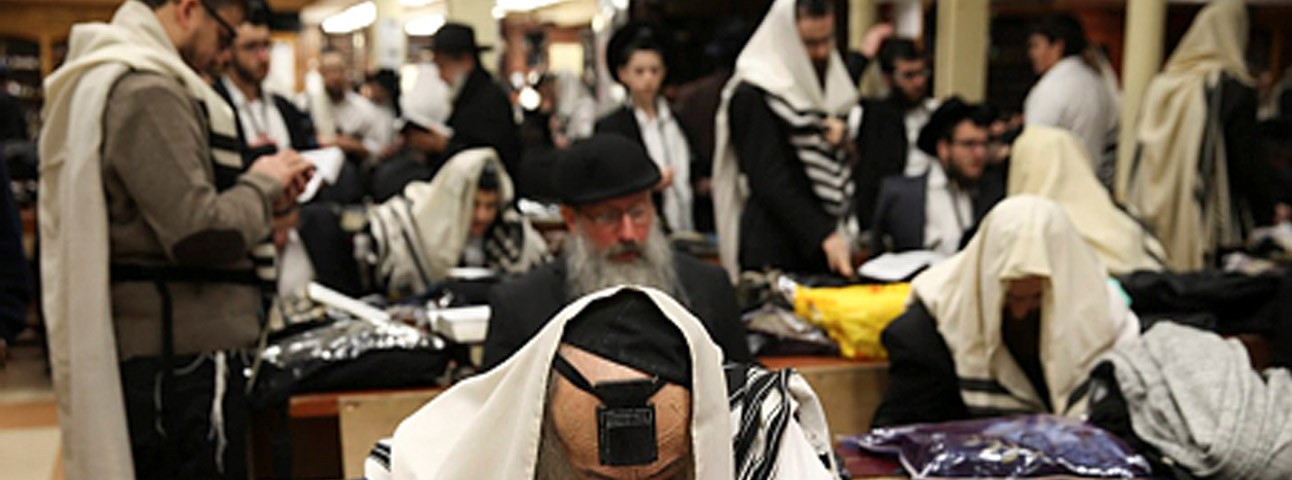
The Orthodox Are No Longer Repairing the World
Written By: Dr. Shuki Friedman
Rabbis outside the Reform and Conservative movements rarely deal with Jewish-values issues such as the asylum seekers and treatment of the Palestinians
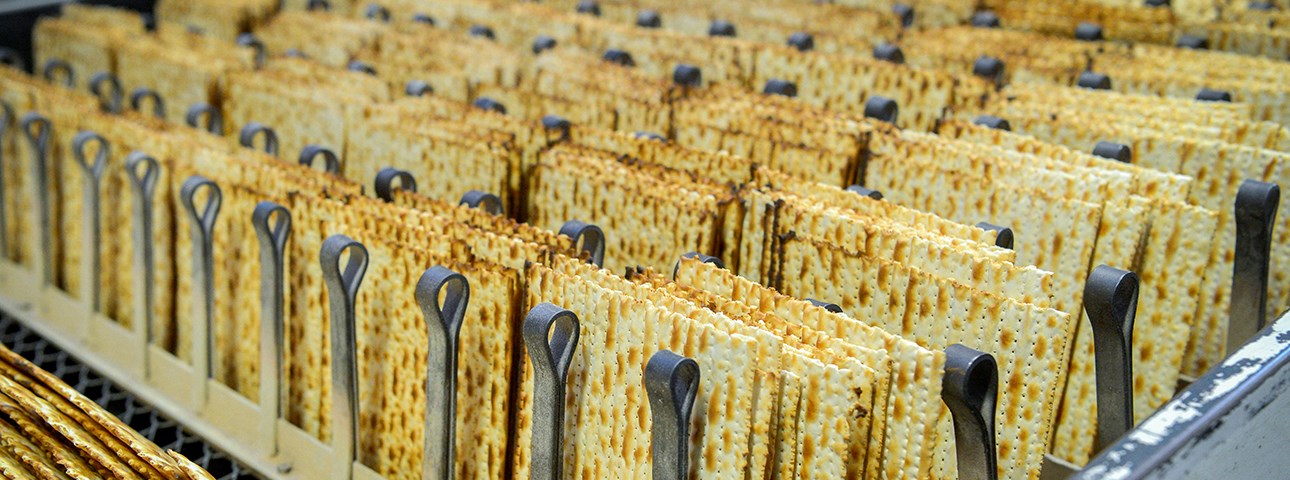
How Many Israelis Keep Kosher for Passover?
Written By: Prof. Tamar Hermann, Prof. Ephraim Yaar
A special update from the Peace Index by Tel Aviv University and the Israel Democracy Institute shows that that two-thirds of the Jews in Israel eat kosher for Passover outside the home and prepare the their house for the holiday - but 58% oppose the ban on cafes and restaurants from serving chametz (bread).
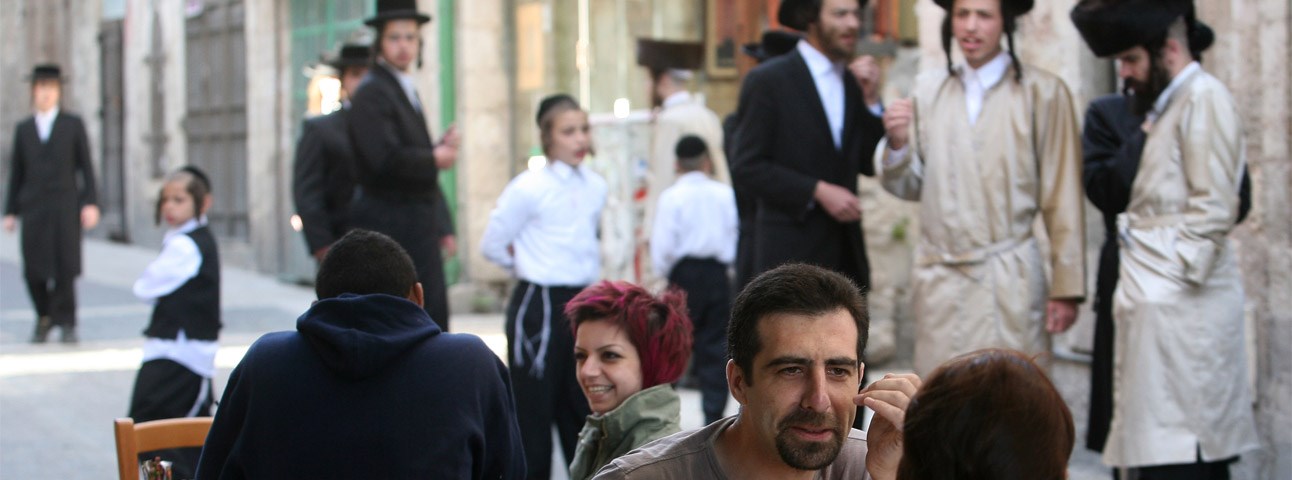
Most want minimarkets, public transport on Shabbat
Written By: Jeremy Sharon | Jerusalem Post
Large majorities of the Jewish public support allowing minimarkets to open and the operation of public transport on Shabbat, a poll by the Israel Democracy Institute has found.
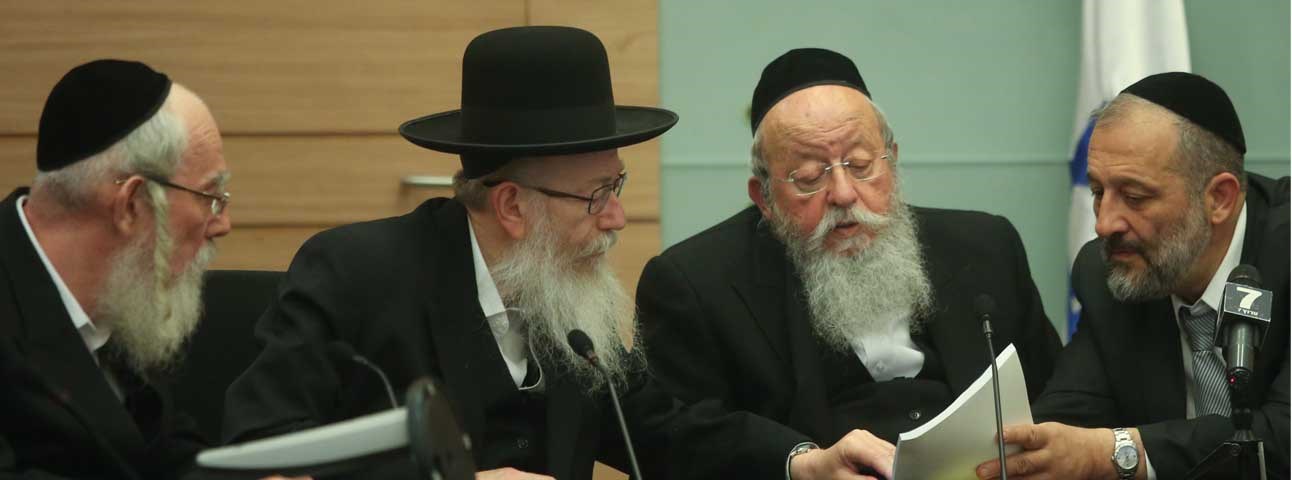
How Much Should Jewish Law Control the Jewish State?
Written By: Dr. Shuki Friedman
For decades, religious and ultra-Orthodox members of Knesset, backed and encouraged by their rabbis, have worked to inject the secular state with as much Judaism as possible. Over the course of 70 years, the results of this ongoing effort have been minimal, but the price paid by Judaism has been great.
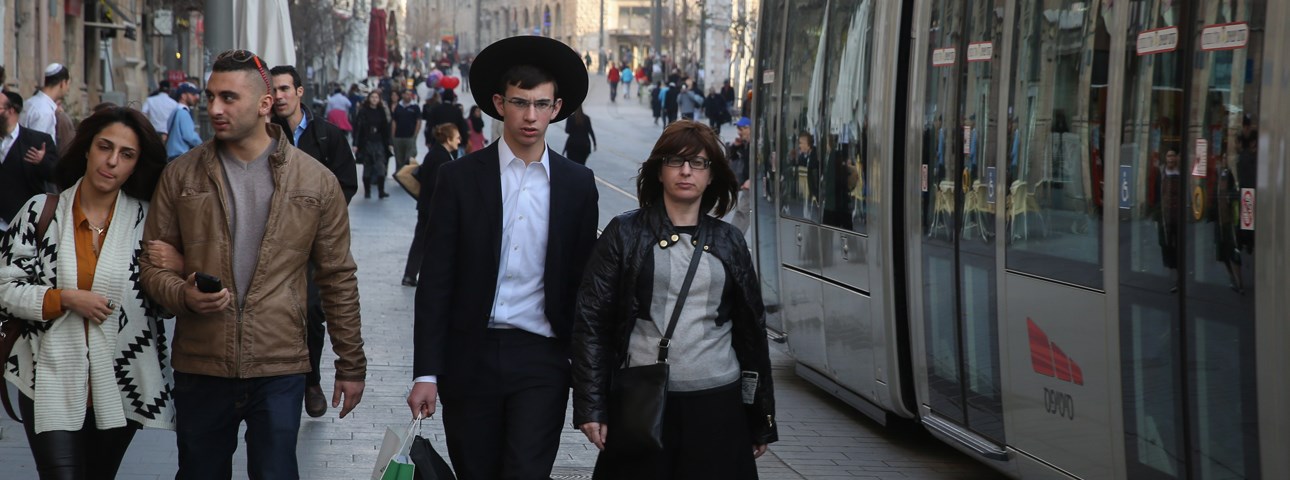
Who are the ultra-Orthodox?
Written By: Prof. Yedidia Z. Stern
Stereotypes—both positive and negative—are an obstacle to the development of a genuine partnership between the ultra-Orthodox and the rest of Israeli society. The Haredim are Israel's biggest sociological mystery. We must learn the facts rather than engaging in speculation.
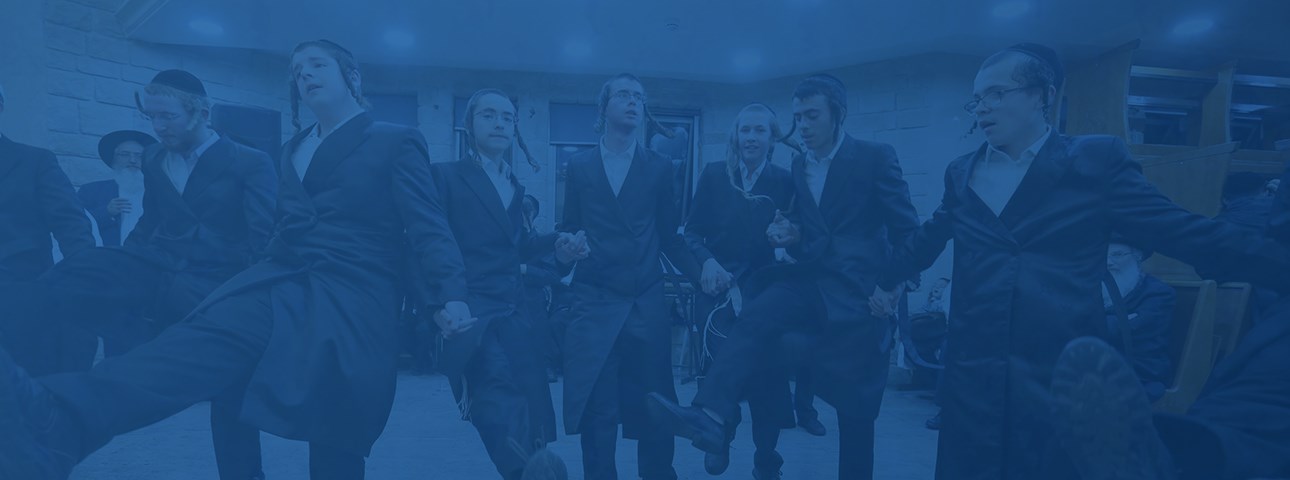
Statistical Report on Ultra-Orthodox Society in Israel
Written By: Dr. Lee Cahaner, Dr. Gilad Malach, Dr. Maya Choshen
Israel Democracy Institute and the Jerusalem Institute for Policy Research published today the 2017 Statistical Report on Ultra-Orthodox Society in Israel. The report presents trends in population, education, employment, and leisure in the ultra-Orthodox sector in Israel.

To those Who are Making Decisions about the Future of the Jewish State:
Written By: Yohanan Plesner
In an op-ed first published by The Forward, IDI's president calls on Israeli leaders to empower Diaspora Jews in the crucial debate on identity and faith.

New IDI Study Calls for Breaking Up the Religious Councils
Study results: Grave failures in the functioning of the councils and in the religious services they provide

A Threat to the Foundations of Jewish Peoplehood
Written By: Prof. Yedidia Z. Stern
Leaving issues of religion and state to an ultra-Orthodox monopoly is leading to estrangement between Israel and the Diaspora. New arrangements must be reached.
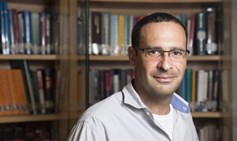
Rosh Hashanah Resolution
Written By: Dr. Shuki Friedman
The upcoming High Holidays are an opportunity to expand our perception beyond our selves and communities. This article was first published by the New York Jewish Week.
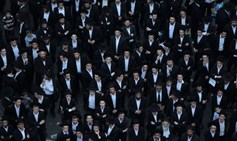
The ‘Religionization’ of Israel is Troubling, but the Fears About it are Hysterical
Written By: Dr. Shuki Friedman
Israel is a Jewish and democratic state. These two characteristics are critical to the country’s existence. This article originally appeared on JTA.org.

Statement by IDI President Yohanan Plesner on the Advancement of the Mikveh Bill
Following today's advancement of the Mikveh Bill by the Knesset Plenum, IDI President Yohanan Plesner said, "The Mikveh Bill is not worthy of being included in the laws of Israel."

The Mikveh Bill: When My Purity Means Your Impurity
Written By: Prof. Yedidia Z. Stern
IDI Vice President Yedidia Stern says, "There is no way to justify this ultra-Orthodox sectarianism, as it prevents others from having the freedom to exercise their religion at public facilities. Allowing ritual baths to be monopolized by the Rabbinate would cause grave harm without any commensurate benefit."
This article was first published by Times of Israel.
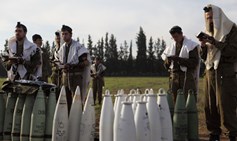
The Haredi Draft: Snakes and Ladders
Written By: Prof. Yedidia Z. Stern
Prof. Yedidia Stern analyzes the problems with past proposals to integrate the ultra-Orthodox sector into the IDF, and proposes a new solution.

Is There a Place for God in the Israeli Army?
Written By: Prof. Yedidia Z. Stern
In an article in the <em>Jewish Week</em>, IDI Vice President Yedidia Stern discusses the question of whether it is appropriate for commanders to use religious rhetoric in motivating their soldiers, and stresses the need for the Israeli army to represent all.

When November 4th Meets the 12th of Heshvan
Written By: Yitzhak Ben David
Rabbi Yitzhak Ben David shares thoughts on the alignment of the Memorial Day for Yitzhak Rabin on the Gregorian and Hebrew calendars, which challenges us to find a renewed reconciliation between Israeli democracy and Jewish civilization.

Shmita: Rest, Share, Release
Written By: Prof. Yedidia Z. Stern
An exploration of the existential, social, and economic dimensions of the Shmita year, that calls for bringing together social, moral, cultural, religious and national forces to implement the idea of Shmita in non-agricultural and national contexts in Israel.

The IDF: Army of the People or Army of God?
Written By: Prof. Mordechai Kremnitzer
IDI Vice President Prof. Mordechai Kremnitzer addresses the question of the appropriateness of the letter that Givati Brigade commander Col.Ofer Winter sent to his subordinate officers as Israel prepared for the ground incursion in Gaza in the summer of 2014.

On Intermarriage, Judaism, and Democracy in Israel
Written By: Benjamin (Benny) Lau
Rabbi Dr. Benjamin Lau shares thoughts on the tension between Judaism and democracy, in response to the public protests against the marriage of a Jewish woman who converted to Islam and an Israeli Arab.
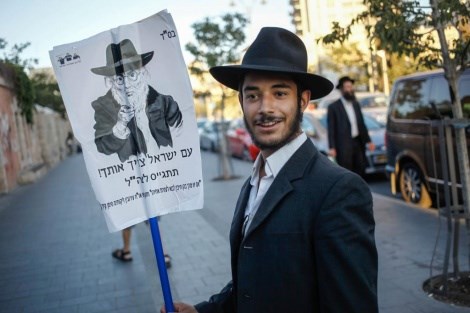
Ultra-Orthodox Integration: It Takes Two to Tango
Written By: Haim Zicherman
In an op-ed in Ynet News, IDI researcher Dr. Haim Zicherman discusses the steps that Israeli society must take in order to enable ultra-Orthodox men to integrate into the Israeli army and workforce.

The IDF and the Ultra-Orthodox
Written By: Haim Zicherman
As the Knesset prepares to vote on the "Draft Law" designed to regulate the service of ultra-Orthodox men in the Israel Defense Forces, Dr. Haim Zicherman surveys the current situation within Israel's Haredi community.

Is "Israeli" a Nationality?
Written By: Jay Ruderman, Prof. Yedidia Z. Stern
Should the State of Israel recognize "Israeli" as a nationality? IDI Vice President Prof. Yedidia Stern and Jay Ruderman assert that it is imperative for the State of Israel to continue distinguishing between citizenship and nationality.
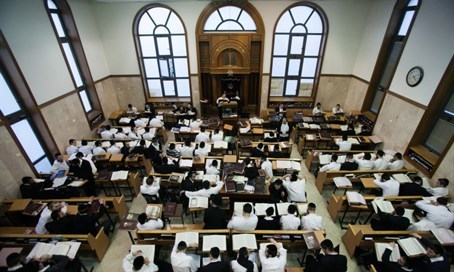
An Unequal Share of the Burden? The Truth about the Hesder Yeshivot
Written By: Prof. Benjamin Porat
Do students in the religious Zionist hesder yeshivot really contribute less to the IDF than other men who serve? IDI Researcher Dr. Benny Porat does the math and comes to an interesting conclusion.
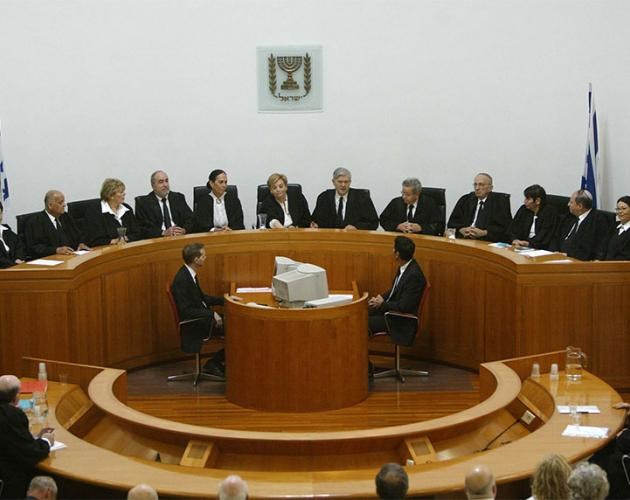
The Haredi Draft: Is the Shaked Committee's Bill Destined to be Overturned?
Written By: Prof. Yedidia Z. Stern
As the Shaked Committee begins to vote on its proposal for the Haredi draft, Prof. Yedidia Z. Stern warns that the proposal's recommendation to exempt Haredi men of draft age during a three-year "adjustment period" is both inequitable and ineffective.

Civil Unions for All
Written By: Prof. Shahar Lifshitz
Prof. Shahar Lifshitz explains why IDI's proposal for civil unions, which was first presented in his IDI policy paper The Spousal Registry, is the best solution possible today for alleviating the distress of couples who cannot or do not want to marry in a religious ceremony in Israel.
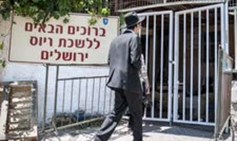
The Haredi Draft: Equality Now?!
Written By: Prof. Yedidia Z. Stern
On November 21 2013, Prof. Yedidia Z. Stern appeared before the Shaked Committee and argued that criminal sanctions are not recommended for reaching conscription goals. In an op-ed in Makor Rishon, he explains why.

On the Need for Civil Unions in Israel
Written By: Benjamin (Benny) Lau
Rabbi Dr. Benjamin (Benny) Lau expresses support for the proposed civil union bill, which would allow couples who do not want to marry in a religious service to form a legally recognized union and be eligible for the benefits and responsibilities associated with marriage.

Civil Unions in Israel as a Democratic Compromise
Written By: Prof. Shahar Lifshitz
Prof. Shahar Lifshitz, author of an IDI policy paper proposing a spousal registry as a framework for civil unions in Israel, welcomes the reintroduction of this issue to the public agenda but expresses some concern about the formulation of the current bill.
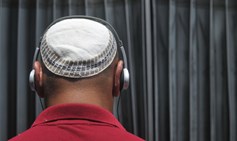
No to the Separation of Religion and State in Israel
Written By: Yair Sheleg
Should the American model of separation of church and state be applied to Israel? In an article in <em>The Jewish Week</em>, IDI's Yair Sheleg argues that Israel needs a unique model.

The High Holidays: A Personal and National Time
Written By: Prof. Yedidia Z. Stern
Prof. Yedidia Z. Stern shares thoughts on the Hebrew calendar, which contributes to Jewish unity and preserves the Jewish people as a single national and cultural unit.
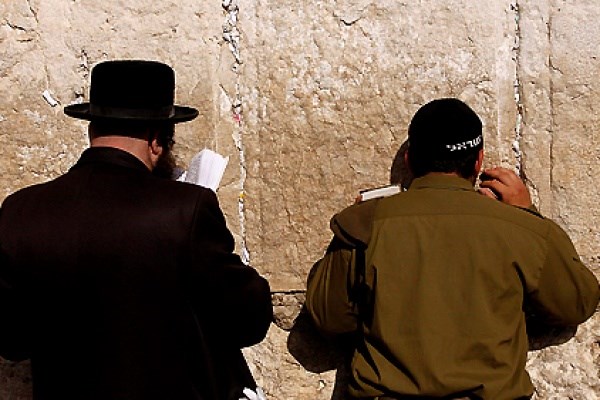
How Can We Draft the Ultra-Orthodox with Consent?
Written By: Prof. Yedidia Z. Stern
Is it possible to draft the ultra-Orthodox and integrate them into Israel's society and economy in a mutually-agreeable manner that encourages solidarity between the different sectors of the Jewish people? Prof. Yedidia Z. Stern shares thoughts on wars between brothers and brothers-in-arms.
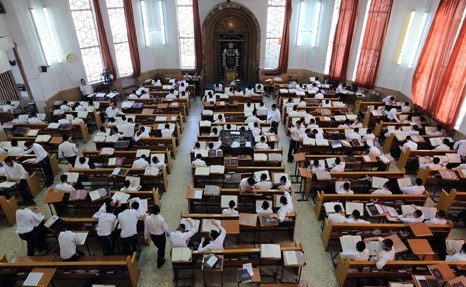
The Ultra-Orthodox Draft: Crossing the Third Rubicon
Written By: Prof. Yedidia Z. Stern, Haim Zicherman
Prof. Yedidia Z. Stern and Attorney Haim Zicherman stress the need to break down barriers that are preventing Haredi service in the army and integration in the labor force, and warn against passing a popular but ill-advised reform.

Haredi Integration: Not by Re-Education
Written By: Haim Zicherman
IDI researcher Attorney Haim Zicherman warns against attempts to integrate ultra-Orthodox Jews into the army by encouraging them to abandon their lifestyle, and calls for developing mechanisms that will accept and respect their values.
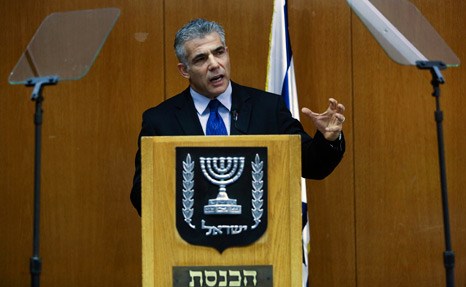
The Ultra-Orthodox Draft: A Test of the New Israeli Politics
Written By: Prof. Yedidia Z. Stern
IDI Vice President of Research Prof. Yedidia Stern warns that the hasty passage of the proposed government bill on the Haredi draft would be "old politics," and stresses the importance of a Knesset debate to arrive at balanced legislation that is in line with the national interest.

Mass Transport on Shabbat and the Conflict between Religion and State
Written By: Prof. Yedidia Z. Stern
IDI Vice President of Research Prof. Yedidia Stern sets the controversy over mass transportation on Shabbat and holidays in Israel in a broader context, and distinguished between the need for an Israeli-Jewish Shabbat (Sabbath) rather than a religious Shabbat.
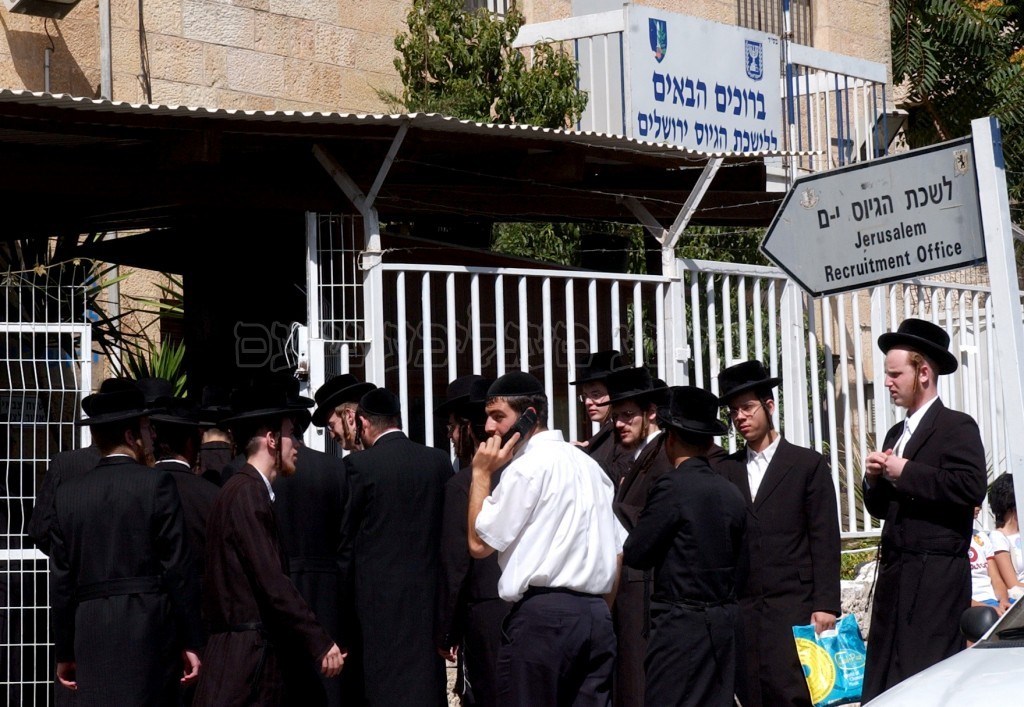
Finding Middle Ground
Written By: Haim Zicherman
In an op-ed in Israel Hayom, IDI researcher Adv. Haim Zicherman argues that a temporary extension of the Tal Law would help the growing trend of ultra-Orthodox enlistment in the IDF and would enable volunteering for civilian service to continue.

The Exclusion of Women from the Public Sphere
Written By: Yair Sheleg
Israeli society has seen a recent push to exclude women from the public sphere. In this blog entry, translated from the Hebrew, IDI Senior Researcher Yair Sheleg, argues against the recent turn toward extremism, calling on Israelis from all camps to respond to these developments responsibly.

Faking Feminism
Written By: Debora Lederman-Danieli
The issue of the exclusion of women and their marginalization in Israeli society has dominated the media in Israel during the past few weeks. In this article, which was originally published in The Seventh Eye on December 25, 2011, Dr. Debora Lederman-Danieli argues that the media's struggle against the phenomenon of the degradation of women requires much more than disingenuous, populist outcries.

The Exclusion of Women and Control of the Public Sphere
Written By: Prof. Yedidia Z. Stern
Why is the marginalization of women in Israeli society and their exclusion from the public sphere on the rise in Israeli society? In this op-ed, IDI Vice President of Research Prof. Yedidia Stern focuses on the religious Zionist community and the power struggle to determine who will control the public sphere and the space of the religious community.

A Tragedy of Errors
Written By: Prof. Yedidia Z. Stern
In an op-ed originally published in Haaretz on June 18, 2010, IDI Vice President Prof. Yedidia Z. Stern responds to the dramatic events in the city of Immanuel, warns secular society about the growing demonization of the Haredi community, and urges the Haredi community to have greater faith in the courts—the ultimate protectors of the rights of minorities.

Decade in Review: Religion and State in Israel
Written By: Yair Sheleg
IDI Research Fellow Mr. Yair Sheleg highlights growing individualism within both the religious and secular Jewish populations in Israel and takes note of growing rifts between the two communities, in an article that was published at the end of the third millennium as part of a collaboration between IDI and Walla!, a popular Israeli website.

From a Shabbat of Work to a Shabbat of Rest
IDI Vice President of Research Prof. Yedidia Stern discusses the innovative Sabbath Law proposed by IDI. This proposed legislation seeks to a unique Israeli character in the public sphere on Shabbat and Jewish holidays, in a way which does not force religion on the public.

The Spousal Registry: Prof. Shahar Lifshitz Explains his Proposal
Written By: Prof. Shahar Lifshitz
The regulation of marriage and divorce in Israel is perceived by many as the main obstacle in attaining a constitution for Israel. Can the Spousal Registry Law help solve the discrepancies that subsequently arise? Dr. Shahar Lifshitz, author of a new Policy Paper on the topic, gives us his personal view.
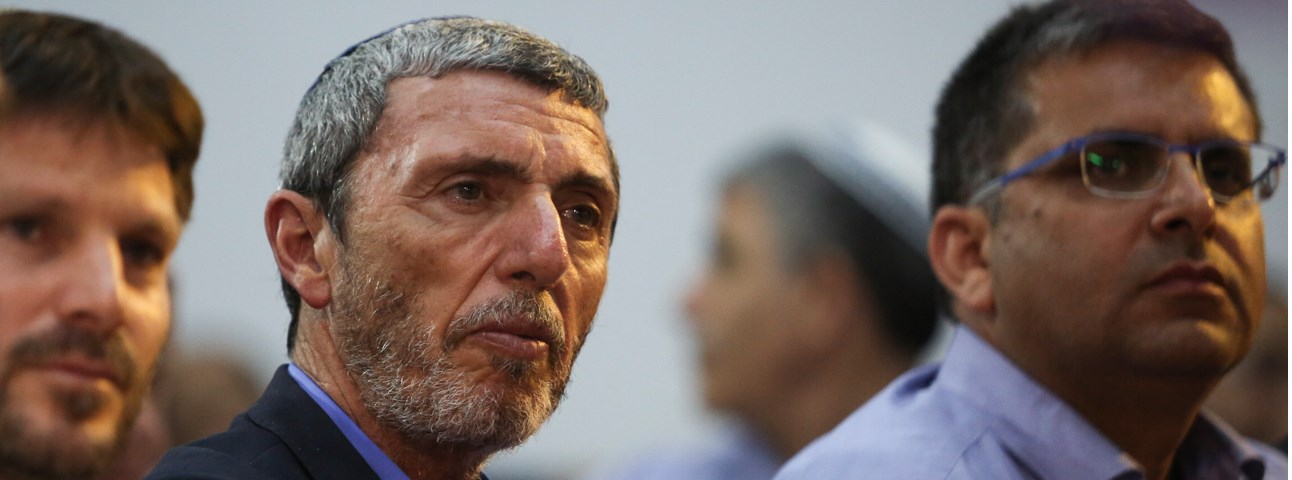
The Burden of Proof
Written By: Yair Sheleg
Calls for applying "Torah Law"in Israel lay bare the the much larger problem posed by the substantial clash of the world of Halacha with two fundamental principles of the modern liberal world: individual freedom and equal rights
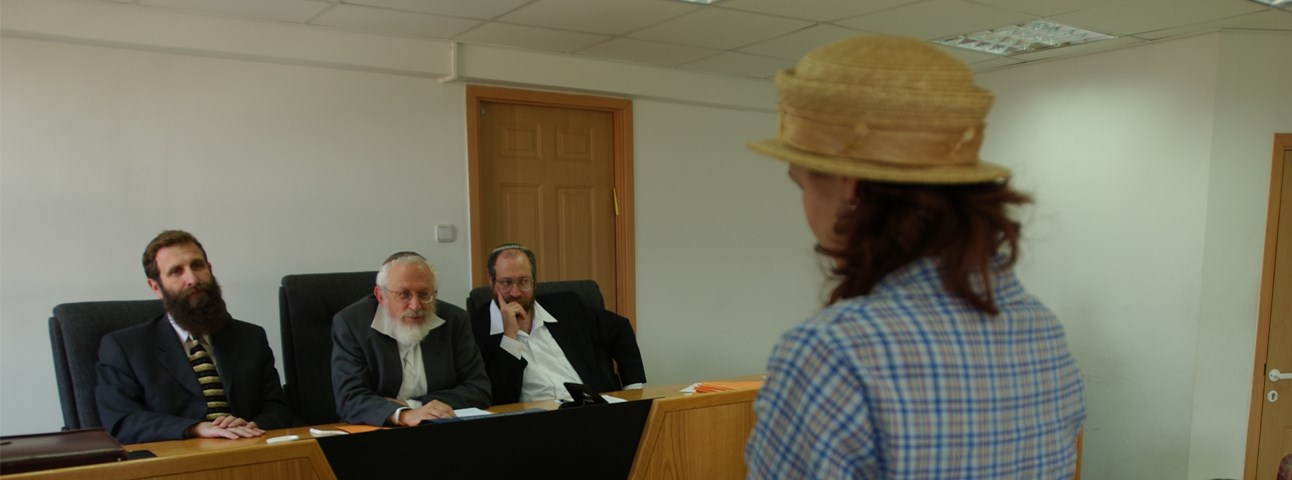
Conversion: Joining a Religion or Joining a Nation?
Written By: Prof. Yedidia Z. Stern
The rigid halakhic position might make conversion irrelevant as the integration of “non-Jewish Jews” into Israeli society will soon legitimize the sociological path to becoming a Jew, outside the bounds of religion, and make conversion superfluous.
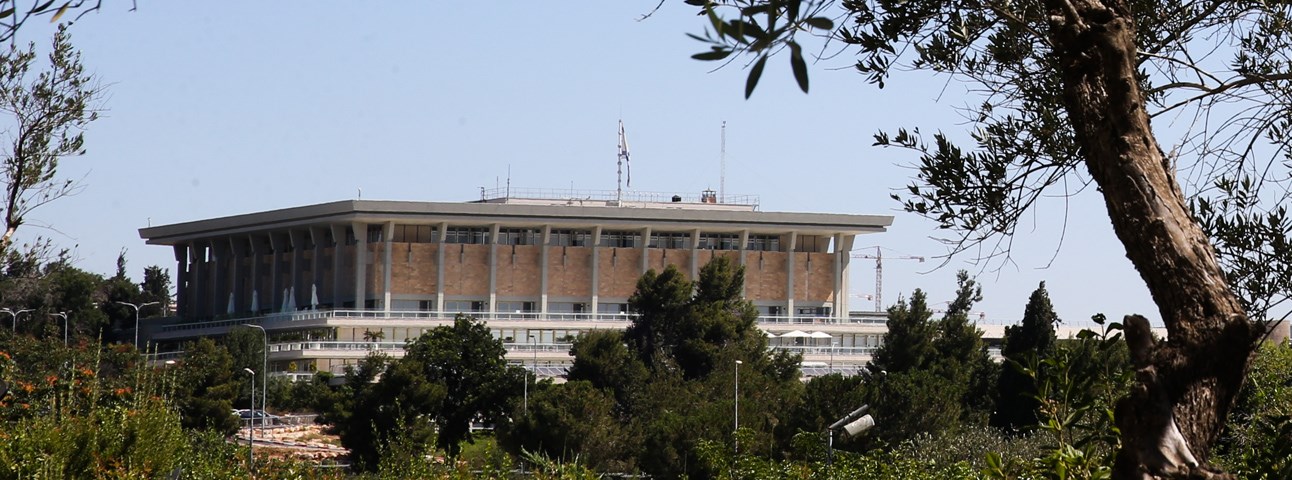
Two Democracies for Two Peoples
Written By: Dr. Shuki Friedman
Israeli society is becoming increasingly polarized with each group holding a very different view of democracy and the State of Israel

Is the Chief Rabbinate's Monopoly on Kashrut Over?
Written By: Dr. Shuki Friedman
The implications of the Supreme Court's ruling go far beyond the Kashrut market.
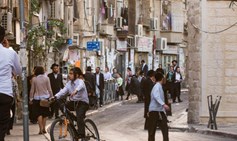
Where Will the Ultra-Orthodox Community Live in 2040?
Written By: Dr. Lee Cahaner
The State of Israel needs to come up with appropriate living solutions for the ultra-Orthodox, whose numbers are expected to increase significantly.

New IDI Survey: 46% of Religious Israelis Support a Change to the Religious Status Quo
A special IDI survey shows that 70% of secular Israelis believe that in recent years life in the public sphere has tended to favor the ultra-Orthodox and religious; over one-third of religious Israelis and 80% of people who define themselves as not religious but traditional either support the separation of religion from state or reducing religious influence on life in Israel.

